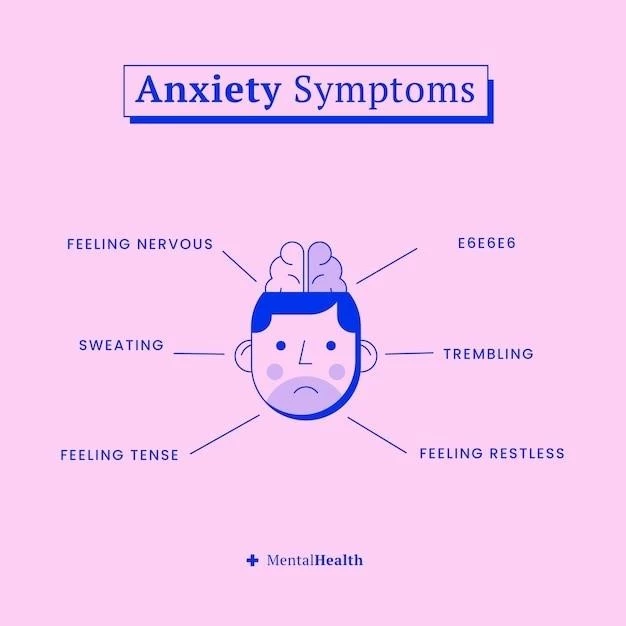Symptoms of Craniofrontonasal Syndrome Teebi Type
The symptoms of Craniofrontonasal Syndrome Teebi Type vary‚ with some common and less common signs present.
Common Symptoms
Common symptoms of Craniofrontonasal Syndrome Teebi Type include craniofacial abnormalities‚ such as wide-set eyes‚ a broad nasal bridge‚ and an abnormal head shape. Additionally‚ individuals may experience intellectual disability‚ skeletal abnormalities‚ and asymmetrical features on both sides of the body. These symptoms can vary in severity from person to person and may present challenges in daily life.
Less Common Symptoms
Less common symptoms of Craniofrontonasal Syndrome Teebi Type may include cleft lip or palate‚ heart defects‚ and abnormalities in the hands or feet. Some individuals may also exhibit hearing loss‚ vision problems‚ or issues with the development of the trachea. While these symptoms occur less frequently than the common ones‚ they can still significantly impact the individual’s overall health and quality of life.
Genetic Causes of Craniofrontonasal Syndrome Teebi Type
Craniofrontonasal Syndrome Teebi Type is primarily caused by a genetic mutation.
X-Linked Inheritance
Craniofrontonasal Syndrome Teebi Type follows an X-linked inheritance pattern‚ which means the gene responsible for the condition is located on the X chromosome. Since males have one X chromosome from their mother‚ they are more severely affected by X-linked conditions. Females‚ who have two X chromosomes‚ may show milder symptoms due to X-inactivation. Understanding the inheritance pattern is crucial for genetic counseling and family planning decisions.
Genetic testing is essential for confirming a diagnosis of Craniofrontonasal Syndrome Teebi Type. This testing typically involves analyzing the specific genetic mutation responsible for the condition. Genetic testing can help provide information about the severity of symptoms‚ guide medical management‚ and offer valuable insights for family members. It is crucial to consult with a genetic counselor or healthcare provider to understand the implications of genetic testing and make informed decisions regarding treatment and care.
Treatment Options for Craniofrontonasal Syndrome Teebi Type
Management of symptoms is a key aspect of treating Craniofrontonasal Syndrome Teebi Type.
Medical Management
Medical management for Craniofrontonasal Syndrome Teebi Type focuses on addressing specific symptoms and complications that may arise. This may include specialized interventions for craniofacial abnormalities‚ monitoring and treatment of intellectual disability‚ and addressing any cardiovascular issues that present. A multidisciplinary approach involving various healthcare professionals such as geneticists‚ surgeons‚ and therapists is often necessary to provide comprehensive care tailored to the individual’s needs.
Psychosocial Support
Psychosocial support is crucial for individuals with Craniofrontonasal Syndrome Teebi Type and their families. Coping with the challenges presented by the condition‚ such as the impact on self-esteem‚ social interactions‚ and daily living‚ may require emotional and psychological support. Counseling‚ support groups‚ and access to mental health services can help individuals and families navigate the emotional aspects of living with Craniofrontonasal Syndrome Teebi Type‚ promoting overall well-being and quality of life.
Prognosis and Life Expectancy of Craniofrontonasal Syndrome Teebi Type
Prognosis and life expectancy vary based on individual symptoms and medical management.
Prognosis
The prognosis for individuals with Craniofrontonasal Syndrome Teebi Type is variable and depends on the specific symptoms and their severity. With early diagnosis‚ appropriate medical management‚ and interventions to address complications‚ individuals can lead fulfilling lives. However‚ the condition may present challenges that require ongoing care and support. Regular monitoring by healthcare professionals and a personalized treatment plan can help optimize the prognosis and quality of life for individuals with Craniofrontonasal Syndrome Teebi Type.
Life Expectancy
The life expectancy of individuals with Craniofrontonasal Syndrome Teebi Type can vary depending on the severity of symptoms and any associated complications. With advances in medical care and management‚ individuals can live into adulthood and beyond. Regular monitoring‚ timely interventions‚ and a multidisciplinary approach to healthcare play essential roles in optimizing life expectancy for individuals with Craniofrontonasal Syndrome Teebi Type. Genetic counseling and support services can also help families navigate the challenges associated with the condition and enhance the overall quality of life.
Craniofrontonasal Syndrome Teebi Type in Children
Understanding the impact of Craniofrontonasal Syndrome Teebi Type in children is crucial for appropriate care.
Developmental Milestones
Children with Craniofrontonasal Syndrome Teebi Type may experience delays in achieving developmental milestones. These delays can impact areas such as motor skills‚ language development‚ and intellectual abilities. Early intervention services‚ including physical therapy‚ speech therapy‚ and educational support‚ are essential to help children with the condition reach their full potential. Monitoring developmental progress closely and providing tailored interventions can significantly enhance the developmental trajectory of children with Craniofrontonasal Syndrome Teebi Type.
Family Impact
Craniofrontonasal Syndrome Teebi Type can have a significant impact on the family members of affected individuals. The challenges and demands of caring for a child with the condition‚ including medical appointments‚ therapies‚ and emotional support‚ can affect the well-being of the entire family. It is essential for families to have access to support services‚ respite care‚ and educational resources to cope with the unique needs of their child. Open communication‚ support groups‚ and a strong support network play crucial roles in helping families navigate the challenges and ensure the best possible outcomes for their loved one with Craniofrontonasal Syndrome Teebi Type.
Diagnosis and Testing for Craniofrontonasal Syndrome Teebi Type
Accurate diagnosis and testing play a crucial role in managing the condition effectively.
Clinical Evaluation
A comprehensive clinical evaluation is essential for diagnosing Craniofrontonasal Syndrome Teebi Type. This evaluation may include a physical examination to assess craniofacial features‚ developmental assessments to evaluate milestones‚ imaging studies to identify skeletal abnormalities‚ and genetic counseling to discuss inheritance patterns. Healthcare professionals use the information gathered from the clinical evaluation to confirm the diagnosis‚ guide treatment decisions‚ and provide appropriate support and care for individuals with Craniofrontonasal Syndrome Teebi Type.
Genetic Testing
Genetic testing plays a vital role in diagnosing Craniofrontonasal Syndrome Teebi Type. Through genetic testing‚ healthcare providers can identify specific mutations associated with the condition. This information is crucial for confirming the diagnosis‚ understanding the genetic basis of the syndrome‚ and providing personalized medical care. Genetic testing also helps in assessing the risk of recurrence in families and offering genetic counseling. It is an essential tool in the comprehensive management of individuals with Craniofrontonasal Syndrome Teebi Type.
Craniofrontonasal Syndrome Teebi Type Research and Studies
Exploring new insights and advancements is key in understanding the syndrome better.
Current Research
Current research on Craniofrontonasal Syndrome Teebi Type focuses on identifying new genetic mutations associated with the condition‚ understanding the underlying mechanisms that lead to craniofacial abnormalities‚ and exploring potential targeted therapies. Studies also aim to improve diagnostic techniques‚ enhance medical management strategies‚ and evaluate the long-term outcomes for individuals with the syndrome. Collaborative research efforts involving clinicians‚ geneticists‚ and scientists play a crucial role in advancing knowledge and improving care for individuals affected by Craniofrontonasal Syndrome Teebi Type.
Scientific Publications
Scientific publications on Craniofrontonasal Syndrome Teebi Type provide valuable insights into the syndrome’s clinical features‚ genetic basis‚ and management strategies. Research articles discuss the latest findings‚ case studies‚ and treatment outcomes‚ contributing to the medical knowledge and understanding of the condition. These publications help healthcare professionals stay informed about advancements in the field‚ guide clinical decision-making‚ and enhance the quality of care for individuals with Craniofrontonasal Syndrome Teebi Type. Access to peer-reviewed scientific literature is essential for continuous learning and improvement in managing this rare syndrome.

Support and Resources for Individuals with Craniofrontonasal Syndrome Teebi Type
Accessing support and resources is essential for individuals living with the syndrome.
Support Groups
Support groups offer a valuable platform for individuals with Craniofrontonasal Syndrome Teebi Type and their families to connect with others facing similar challenges. These groups provide emotional support‚ information sharing‚ and a sense of community. By participating in support groups‚ individuals can feel understood‚ gain insights into managing the syndrome‚ and access resources for improving their quality of life. Support group meetings‚ online forums‚ and events can enhance social and emotional well-being‚ fostering a supportive network for those affected by Craniofrontonasal Syndrome Teebi Type.
Therapeutic Services
Therapeutic services play a crucial role in the comprehensive care of individuals with Craniofrontonasal Syndrome Teebi Type. These services may include physical therapy to improve motor skills‚ speech therapy to enhance communication abilities‚ occupational therapy to develop daily living skills‚ and psychological support to address emotional well-being. A multidisciplinary approach involving various therapeutic interventions can help individuals reach their full potential and improve their overall quality of life. Access to tailored therapeutic services is essential in optimizing the holistic care and well-being of individuals with Craniofrontonasal Syndrome Teebi Type.
Educational Resources
Educational resources serve as valuable tools for individuals and families navigating Craniofrontonasal Syndrome Teebi Type. These resources may include access to specialized educational programs‚ informative websites‚ educational materials‚ and guidance on developmental interventions. By utilizing educational resources‚ individuals can enhance their understanding of the condition‚ learn about available support services‚ and access tools to aid in the educational development of individuals with Craniofrontonasal Syndrome Teebi Type. Empowering individuals with knowledge through educational resources is essential for promoting learning and growth in individuals affected by the syndrome.
